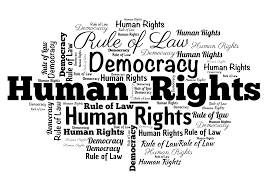
This topic considers several explanations for the international human rights movement‘s sudden heightened attention to rule of law.
Human rights movement has progressively confront conceptual, normative and political challenges. Perhaps, as de Mello suggested, rule of law are going to be a “fruitful principle to guide us toward agreement and results,” and “a touchstone for us in spreading the culture of human rights.”
We still board a world where widespread human rights violations are the norm instead of the exception. Rules of law is define as directly integral to the implementation of rights.
Rule of law can also be indirectly related to better rights protection therein rule of law is associated with economic development, which is said to raised rights performance.
Rule of law is integral too and necessary for democracy and good governance. Attempts to democratize without a functional system in situ have resulted in social disorder.
Rule of law is claimed to facilitate geopolitical stability and global peace. According to some, it's going to help prevent wars from occurring within the first place. It also provides guidelines for a way war is administered , and is central to the establishment of a rights-respecting post-conflict regime.
Post 9-11 deals with over terrorism have also focused attention on rule of law.
One more thing that is very much important, rule of law provides a rhetorical basis for challenging the world‘s sole reigning superpower.
Taking each of these factors in turn, I critically analyse the relationship between rule of law and human rights. Because this relationship is complex and defies easy summary across such a broad range of issues. Nevertheless, a provisional summary that highlights some of the key findings and conclusions may be helpful.
First, on the entire , rule of law is desirable. However, it is clearly no panacea for any of these problems.
No. Two, rule of law is more useful in addressing some concerns than others. Requesting to rule of law will do little to resolve the conceptual and normative difficulties at the core of the human rights agenda.
No.Third, the empirical evidence to support the assertion that rule of law results in more rights and wellbeing is restricted , and subject to doubts about causality. There is good reason to believe that wealth instead of rule of law is especially liable for better rights performance, although rule of law can also have some independent impact.
No.Fourth, although rule of law and liberal democracy generally go hand in hand, they have not. Rule of law is feasible in non-democratic states, and in democratic but non-liberal states. Rule of law may proceed, and is usually a precondition for, democratic consolidation.
No.Fifth, we should always not put an excessive amount of faith within the ability of rule of law to stop war, limit atrocities during war, or rein during a superpower bent going its own way.
Finally, rule of law is merely one component of a just society. In some cases, the values served by rule of law will got to subside to other values. Invoking rule of law in most cases signals the start of normative and political debate, not the top of it.